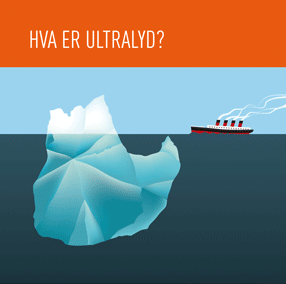~500 BC
Pythagoras described the mathematical properties of stringed instruments marking the beinning of the science of acoustics.
1794
Bat's navigation by 'inaudible sound', also known as echolocation, was documented by Lazzaro Spallanzani.
1880
The Piezoelectric effect was discovered by Jacques and Pierre Curie.
1912
The Titanic sank, urging a drive to develop technology to discover underwater icebergs.
1917
First attempts to detect submarines using ultrasound by Paul Langevin.
1942
Neurologist Karl Dussik uses ultrasound for the first time to find brain tumours.
1953
Inge Edler and Helmut Hertz produced the first ultrasound images of the heart in Lund, Sweden.
1970
An electronic patient simulator called Jenny is produced by PhD-candidate and physician Alf Brubakk and technologist Rune Aslid, with support from Professor Jens Glad Balchen (NTNU).
1973
The start of the development of PEDOF (Pulsed Echo Doppler Flowmeter). This is part of Bjørn Angelsen's PhD at teh Department for Technical Cybernetics. PEDOF measures the speed of the bloodstream in the heart and in larger bloodvessels.
1974
Use of Bernoulli-equation to estimate the fall in pressure over a stenosed valve from the speed in the stenosis using experimental equipment.
1975
SINTEF awarded a loan of NOK 120 000 to build 10 prototypes of PEDOF to use in the clinic.
1976
- PEDOF prototype produced.
- 5 students hired to assemble PEDOF, which were sold for about NOK 30 000 per instrument.
- Liv Hatle started using PEDOF to examine hearts.
- Doppler-ultrasound developed by Bjørn Angelsen.
1977
Vingmed AS got involved.
1978
PEDOF used to measure arterial bloodstream in foetuses by Sturla Eik-Nes.
1981
PEDOF is replaced by ALFRED.
1983
Book: "Doppler Ultrasound in Cardiology – Physical Principles and Clinical Applications", Lea&Febiger, Philadelphia, by Bjørn Angelsen and Liv Hatle.
1986
First version of CFM-700 exhibited at the American College of Cardiology (ACC), Atlanta.
1988
First blood transfusion to a foetus in the womb - assisted by ultrasound. (Video)
1990
- CFM-750 introduced.
- Founding of the National Centre for Foetal Medicine (Nasjonalt senter for fostermedisin - NSFM)
1993
World's first 3D-ultrasound lab is opened at St. Olavs Hospital, financed by GE Vingmed.
1996
3D ultrasound for brain tumours developed - a cooperation between neurosurgeon Geirmund Unsgård at St. Olavs Hospital and technologists at NTNU.
1997
NSFM became a WHO centre.
1998
GE Vingmed bought by GE Healthcare.
2009
VScan launched (pocket-sized ultrasound) - one of the most important inventions of the year, according to Time Magazine.
2015
The SFI Centre for Innovative Ultrasound Solutions (CIUS) founded

